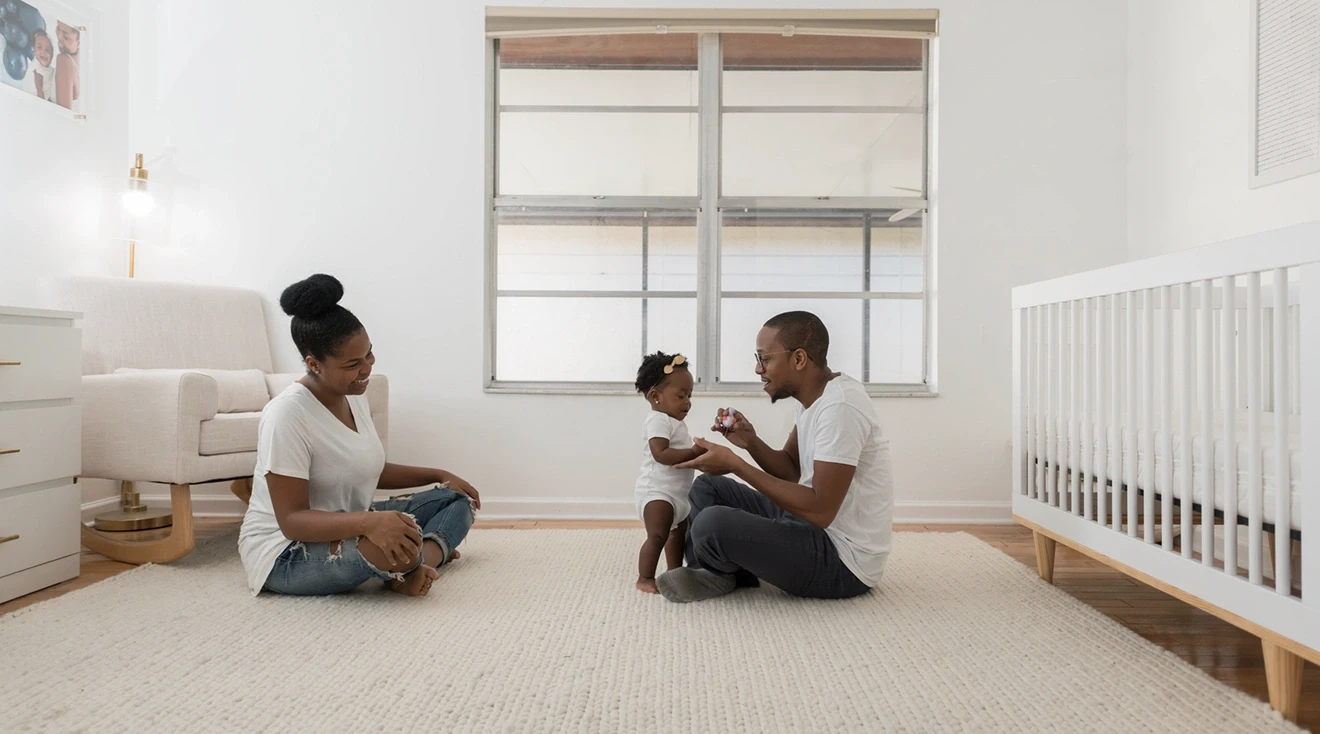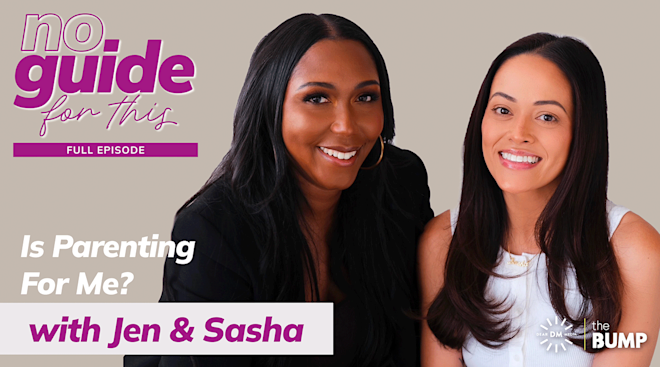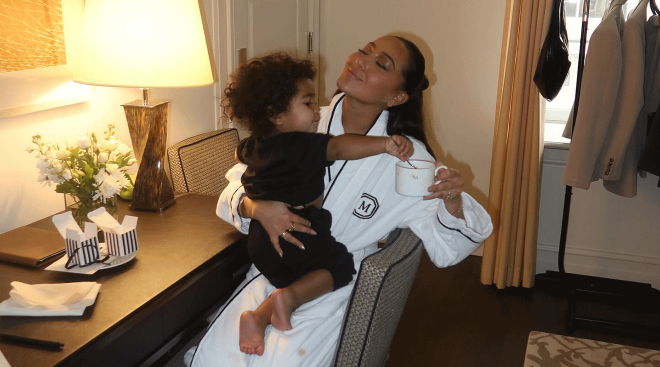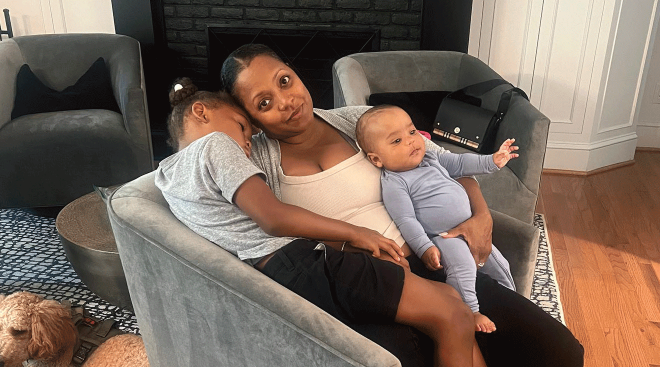What to Do if Your Child Has a Preferred Parent
It’s a tale as old as time: Your child has a “favorite” parent—their go-to person for, well, everything. Call it a badge of honor, but it’s actually not ideal for either parent. Being perpetually on call can quickly become overwhelming for the preferred parent. And while an unfavored parent may get out of some tedious day-to-day tasks, they’ll likely start feeling hurt by their child’s rejection. Ultimately, there’s no winner, and this dynamic can cause tension all around.
Parental preference is totally normal and very common. And whether you’re the “chosen one” or not, it’s important to remember that you and your co-parent are on this journey together. The good news: This finicky phase will likely pass. In the meantime, there are steps you can take to spread the love and share the parenting responsibilities. Here’s what you can do.
Parental preference is a normal part of a child’s development and can occur at any time, although many children begin showing favoritism as infants or toddlers. These dynamic shifts often emerge around key developmental leaps, like learning to walk and talk, says Bryana Kappadakunnel, LMFT, a family therapist and CEO of Conscious Mommy. Below, a few common reasons your little one may suddenly cling to you and reject your other half (or vice versa).
- They spend more time with one parent. Often, parental preference is simply about time spent with the child. A study showed that babies and toddlers tend to prefer their moms because they spend more time with them. Of course, this isn’t always the case, but it certainly rings true for many families. Simply put, primary caregivers are around more often, so they’re automatically thrust into the role of the go-to parent. “Young children have a strong preference for sameness,” says Cara Goodwin, PhD, a licensed clinical child psychologist and mother of three. They prefer to have the same parent do all activities with them, even if the other parent becomes available. On the other hand, if you work outside of the home or are frequently away, your kiddo might be more excited to spend time with you when you are present. It can work either way.
- It’s based on the activity. In other circumstances, a child’s preferences may change depending on the situation. For example, they may prefer one parent for their bedtime routine and another for playing hide and seek. Of course, in this case, there’s a strong imbalance. You probably don’t play hide and seek every day, but you certainly need to make bedtime a nightly routine. In other words, being the preferred bedtime parent might become exhausting quickly.
- It gives your child more power. Little ones crave independence and autonomy and don’t get as much of it as they’d like. Having a preferred parent is one way they can voice their opinion and exercise control, explains Goodwin.
- The parent and child’s personalities align. As adults, we generally surround ourselves with people whose likes and dislikes match ours. Kappadakunnel says children are the same way and may favor the parent whose temperament or interests more closely matches their own.
- Major situational changes. Parental preference can emerge in situations of necessity or during big life transitions, like a divorce in the family or the birth of a new sibling.
- Parenting style. Finally, there’s “good cop, bad cop” parenting. Toddlers are smart creatures; they may recognize which parent will allow them to do certain activities, and which is likely to be more strict.
Parental preference isn’t ideal for either parent. When your toddler won’t let you swap out, it can lead to serious issues like parental burnout, conflict or a lack of quality bonding time for the less preferred parent. Addressing your child’s parental preference as soon as it emerges will help nip issues in the bud.
First things first: Make a plan and stick to it. According to Goodwin, children can sense when their parents are unclear about what to do in a situation, making them more likely to push limits—so work together, be direct and firm with boundaries and always follow through. What’s more, while your frustration might be mounting, try to avoid reacting in the moment when parental preference rears its head. This can make a child cling to a particular parent even more, says Kappadakunnel.
Also consider giving your little one some autonomy in other areas. “Because parental preference is often related to control, make sure to allow them choice over something else,” advises Goodwin. Depending on the circumstance, let them choose the bedtime book, the breakfast cereal or the daily activity. Your kiddo wants to feel like their opinion matters, so even if they can’t have their preferred parent at any given moment, they can have some say in the surrounding situation.
Most importantly, remember you and your co-parent share the goal of having a healthy, happy and functional family. “When it comes to parent preference, it’s easy to feel like one parent is doing it right and the other is doing it wrong. Abandon that narrative, and see that the two of you are on the same team,” says Kappadakunnel. No one is at fault for a child’s preference, so don’t blame each other or let guilt come into play. “Your child is still learning how to keep two relationships in mind at the same time, and that’s a really hard skill to do,” says Kappadakunnel.
Tips for the favored parent
Being the favorite isn’t as great as it sounds! Here are some ways you can handle the situation without letting it impact your relationship with your child and your other half.
- Resist the urge to swoop in. It’s your instinct to come in and save the day when your little one is upset. But take a beat and allow your partner to play the part. Let them have a moment, instead of immediately coming to the rescue,” advises Kappadukunel. “By holding back at times, the preferred parent shows confidence in the other parent and creates room for that parent to create a deeper bond with their child,” she says.
- Avoid criticizing. You might feel frustrated that you do the majority of the work, but don’t let bubbling burnout fuel negative talk about your partner—and try to avoid bossing them around. You don’t want to legitimize your child’s belief that their other parent is less capable. What’s more, this can fuel a riff between you and your partner, who may already be feeling shaky about their parenting skills.
- Reaffirm and redirect. Don’t let the child decide what’s happening. Be gentle but firm, and remind your kiddo of the plan.
- Provide support for the other parent. Discuss how things are going and validate their feelings. Be sure to recognize their efforts and show appreciation for what they do.
- Be aware of your mental health. Being the go-to parent can take a toll on your mental health. It can also lead to resentment toward your partner. Remember to ask for help when you need it—whether it’s with parenting responsibilities or chores around the house.
- Take a break. Your child can’t choose you if you’re not there, so leave the house for a bit. This gives your co-parent time to find a rhythm that works, says Kappadakunnel. What’s more, your child may also realize that special one-on-one time with their other parent is nice after all. Best of all, you’ll get a little “me time,” which you surely deserve.
Tips for the unfavored parent
Being the second choice can mean you have a lot less parenting work to do on a day-to-day basis. (Of course, that also means your parenting partner is doing pretty much everything.) Workload aside, you might be feeling left out and rejected. Here are some steps to take to help encourage a more balanced situation:
- Don’t force physical affection. It’s hard when your little one doesn’t want to give you hugs and kisses and physical attention, but forcing the issue is never the answer. Try to back off and let it happen naturally (it may take time). Focus on making even the most mundane of activities with your kiddo feel special and meaningful.
- Spend one-on-one time with your child. Be intentional about your time. Set specific days for the two of you to have quality time together. Kappadakunnel suggests establishing a routine doughnut run on Sundays, a weekly swim class or an afternoon walk.
- Stay firm when it’s “your turn” for certain parenting duties. If it’s your turn to bathe your child, but they’re screaming for the other parent, Kappadakunnel suggests calmly reiterating the plan. Don’t relent and don’t get worked up. “Even if your child spends their entire time with you crying for the other parent, you’re learning how to breathe, regulate and stay present with your child,” she says.
- Be proactive. When you’re all home in the evening together, and your child needs something, get up and take care of it, advises Kappadakunnel. Don’t wait for your co-parent to handle the situation. This can help send the message to your kiddo that you’re fully capable, while also taking some work off your partner’s plate.
- Don’t take it to heart. You’ll never be your parenting partner, and they’ll never be you. Kids are allowed to have preferences and unique relationships with each person. “It’s a sign that your child feels secure and comfortable in your relationship to reject you,” says Goodwin.
Stay calm and be prepared to stick to your boundaries if and when your child pushes back. Kappadakunnel says to validate your kid’s feelings, but set clear parameters and move on with your day.
Your child’s preference is most likely temporary. Moreover, their favorite parent may change throughout the years. “In general, as children become more and more secure in their relationships—and their understanding of relationships—we’ll see that they grow out of this developmental stage,” says Kappadakunnel. Above all else, remember that regardless of whether you’re the preferred parent or not, your child loves you more than you know.
Please note: The Bump and the materials and information it contains are not intended to, and do not constitute, medical or other health advice or diagnosis and should not be used as such. You should always consult with a qualified physician or health professional about your specific circumstances.
Plus, more from The Bump:
Cara Goodwin, PhD, is a licensed clinical child psychologist, the founder of Parenting Translator and a mother of three. She earned her doctorate in psychology from the University of North Carolina at Chapel Hill.
Bryana Kappadakunnel, LMFT, is a licensed marriage and family therapist, perinatal mental health specialist and the CEO of Conscious Mommy.
Social Sciences, Still Mother after All These Years: Infants Still Prefer Mothers over Fathers (If They Have the Choice), January 2022
Learn how we ensure the accuracy of our content through our editorial and medical review process.
Navigate forward to interact with the calendar and select a date. Press the question mark key to get the keyboard shortcuts for changing dates.




















































